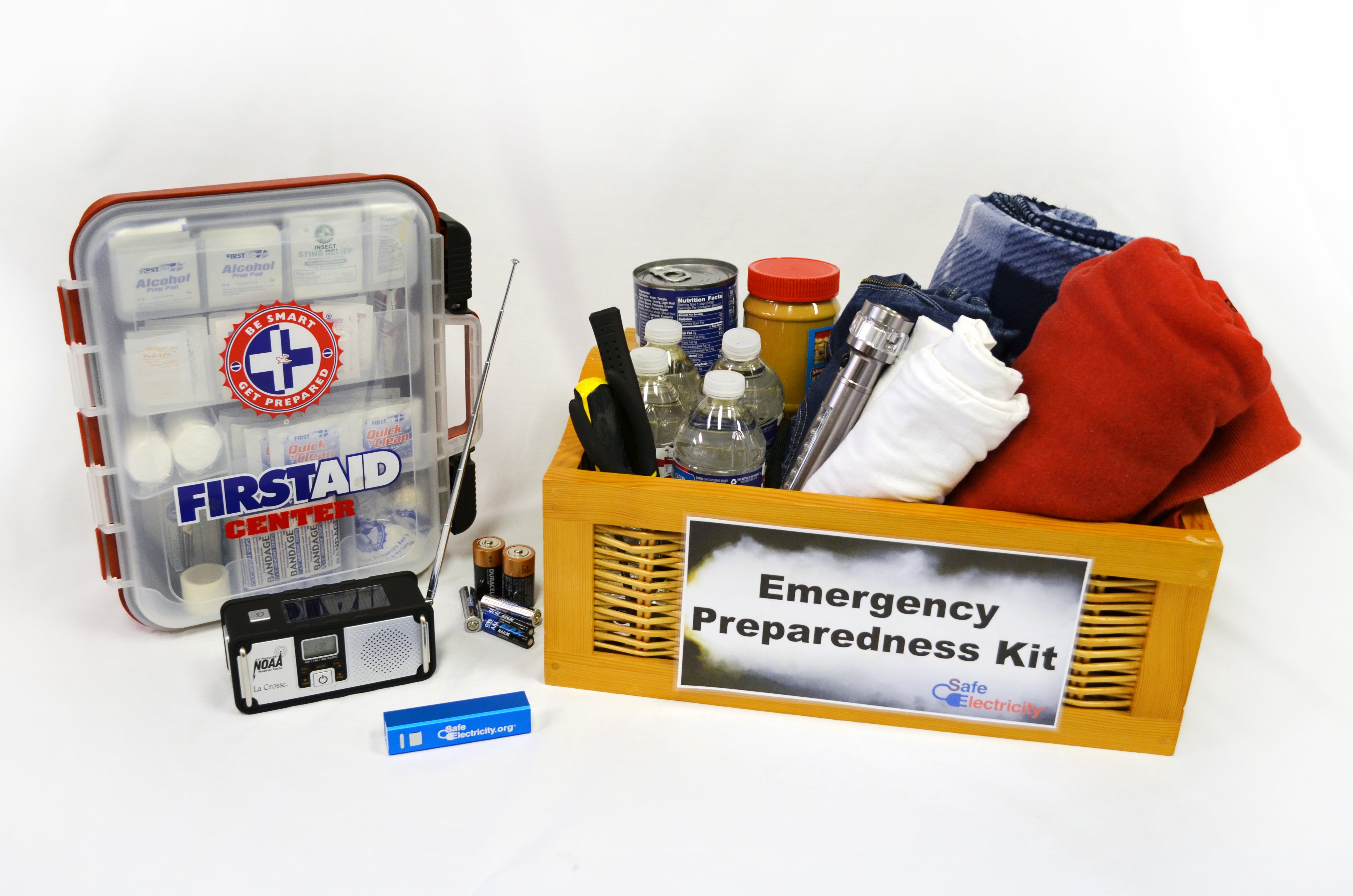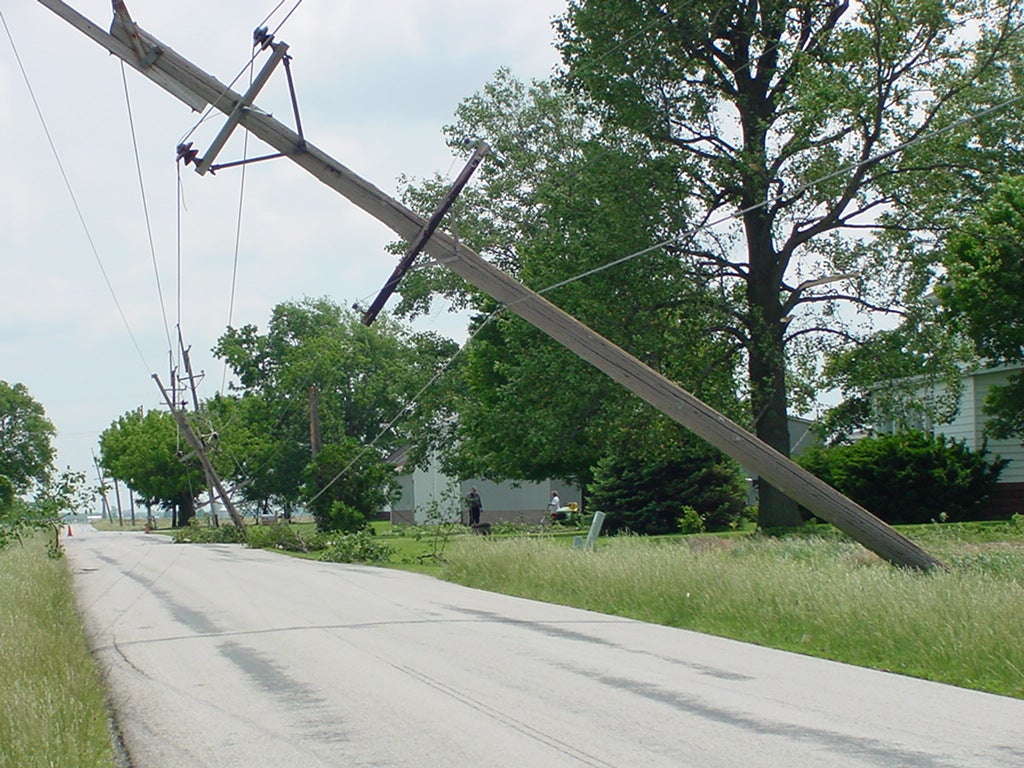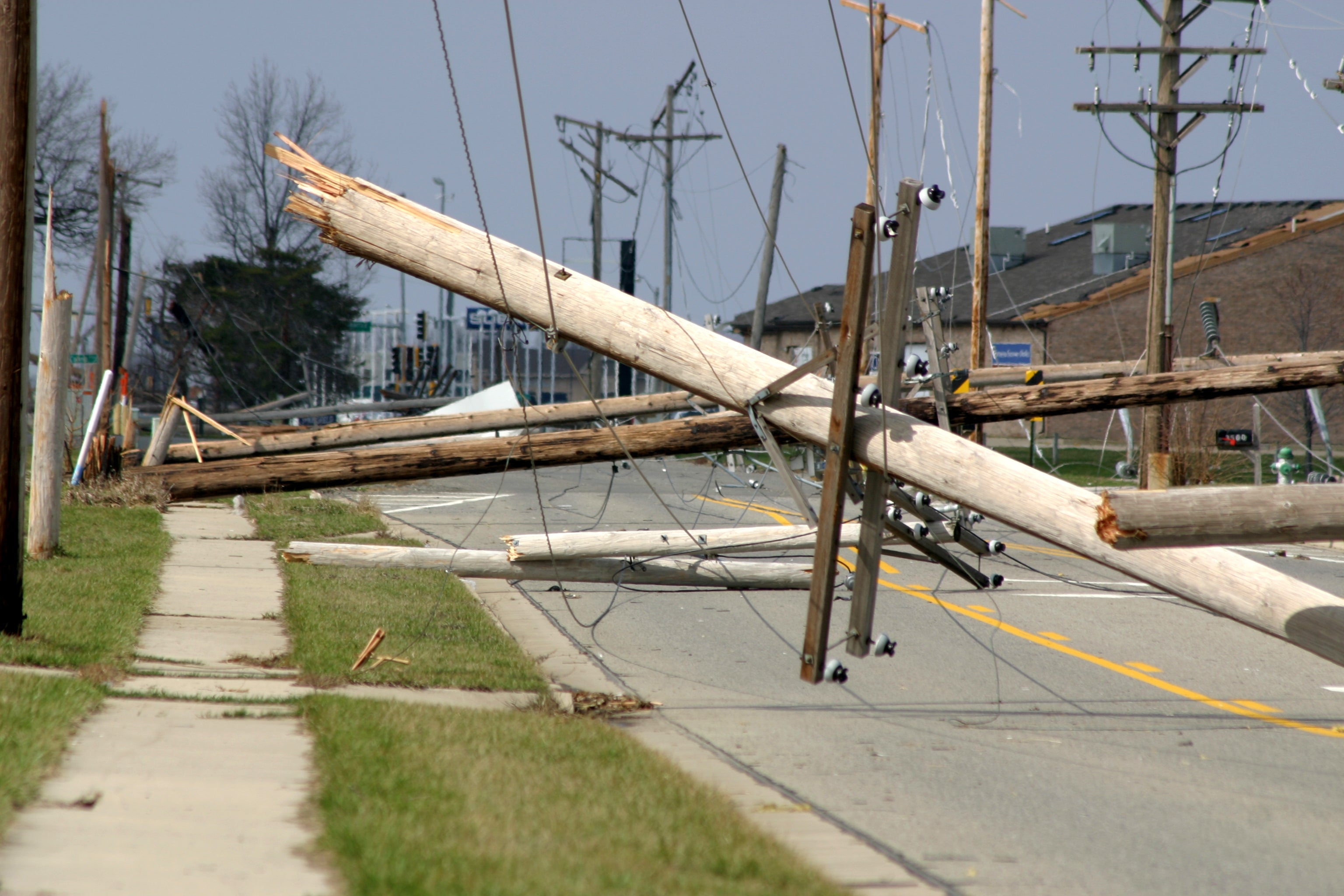Power Outage Safety
Unfortunately, power outages happen. During an outage, CEC crews work hard to restore members' power, but this can still leave members without power for varying amounts of time.
The following tips will help keep you and your family safe during a power outage.

Prepare an Outage Kit
Have a kit prepared before an outage happens. It should include:
- Flashlights with fresh batteries.
- Matches for lighting gas stoves or clean burning heaters.
- Wood for a properly ventilated fireplace.
- First aid kit, prescription medicines, and baby supplies.
- Food that can be kept in coolers and a manual can opener.
- A non-cordless telephone and/or fully charged cellular phone.
- Bottled drinking water.
- Battery-powered emergency lights and radio.
Keep Your Food Safe
The electricity just went out and your refrigerator is packed with food. The following tips are provided by the United States Department of Agriculture (USDA) and will help ensure your food is safe during and after a power outage.
You should:
-
Never taste the food to determine its safety.
-
Keep the refrigerator and freezer doors closed to maintain a cold temperature (a full refrigerator will keep food cold for four hours and a full freezer will hold a safe temperature for 48 hours).
-
Obtain dry ice to keep your refrigerator and freezer cold if power is expected to be out for a long time.
-
Check the temperature of your freezer with an appliance thermometer if the power has been out for a few days (food should be at 40 degrees Fahrenheit or below).
-
Discard refrigerated perishable food such as meat, poultry, fish, cheeses, milk, eggs, leftovers and deli items after four hours without power.

Short-Term Power Outages
- Don’t panic.
- Check to see if your neighbors still have electricity.
- If your neighbors have electricity, the problem could be inside your home. Check your main fuses or circuit breakers to see if they have blown or tripped.
- If your neighbors do not have electricity, call your electric supplier. A repair person will be dispatched as quickly as possible. Your supplier should also be able to tell you if it will be an extended outage.
- Unplug appliances with electronic components, such as microwaves, televisions, and DVD players. This will help eliminate damage to your appliances from voltage surges when the electricity is restored.
- Wait a few minutes before turning on these appliances when the electricity is restored. This will reduce demand on the power supplier’s electrical system.
- If you use a standby generator, be sure it has been installed and wired properly. If improperly installed, a generator could cause dangerous conditions for utility employees working to restore power.
- Check the basement periodically for flooding. You can use a portable, gasoline-powered pump to pump out a basement or crawl space when the power is interrupted to an electric sump pump. Never wade into a flooded basement unless electricity supplying sump pumps, freezers, etc. has been disconnected.
Extended Power Outage/Home Shutdown
- Unplug everything in your home. Turn off breakers or remove fuses. Leave one lighting circuit on so you know when the electricity comes back on.
- Winterize your water supply system completely. Be sure to disconnect the electrical supply to the water heater before draining.
- The drainage system in the home also needs to be winterized. This is done by pouring antifreeze into the traps in the drains below sinks, toilets, washing machines, etc.
- Empty all food from freezers and refrigerators, and leave doors open.
- If your home is equipped with an electric heat pump, special care is needed when turning the unit on after an extended outage. It takes a period of time (check with dealer) for the lubricant in the refrigerant to warm up.
- Keep curtains closed except on south facing windows in the winter when the sun is shining.

- Keep freezers and refrigerators closed. Wrap blankets around the appliances to provide extra insulation.
- Make sure you have bottled water and a supply of freeze-dried or canned food in your emergency kit to prevent dependence on your refrigerator.
- A barbeque grill is an excellent way to prepare food. A charcoal grill should always be used outside.
- Air conditioners should be turned off during power outages. Do not turn them back on for several minutes after the power has been restored.
- Dress comfortably, and use natural ventilation to keep your home cool.
- If health of family members is a concern, stay with friends or family or go to a shelter.
- Your electricity supplier should be notified if you use life support equipment in your home.
- Dress warmly. Several layers of clothing provide better insulation than a single layer of heavier clothing.
- Move to a single room, preferably one with few windows. Ideally, this room should be on the south side of the home for maximum heat gain in the daytime. The room should also be shut off from the rest of the house.
- If you use an alternate heat source, be sure and follow operating instructions.
- To keep your water pipes from freezing, a small stream of water can be left on to prevent this.
Inclement Weather Safety Tips
- Pennsylvania Emergency Preparedness Guide
- Lightning Safety Tips & Resources
- Thunderstorm Safety
- Tornado Safety
